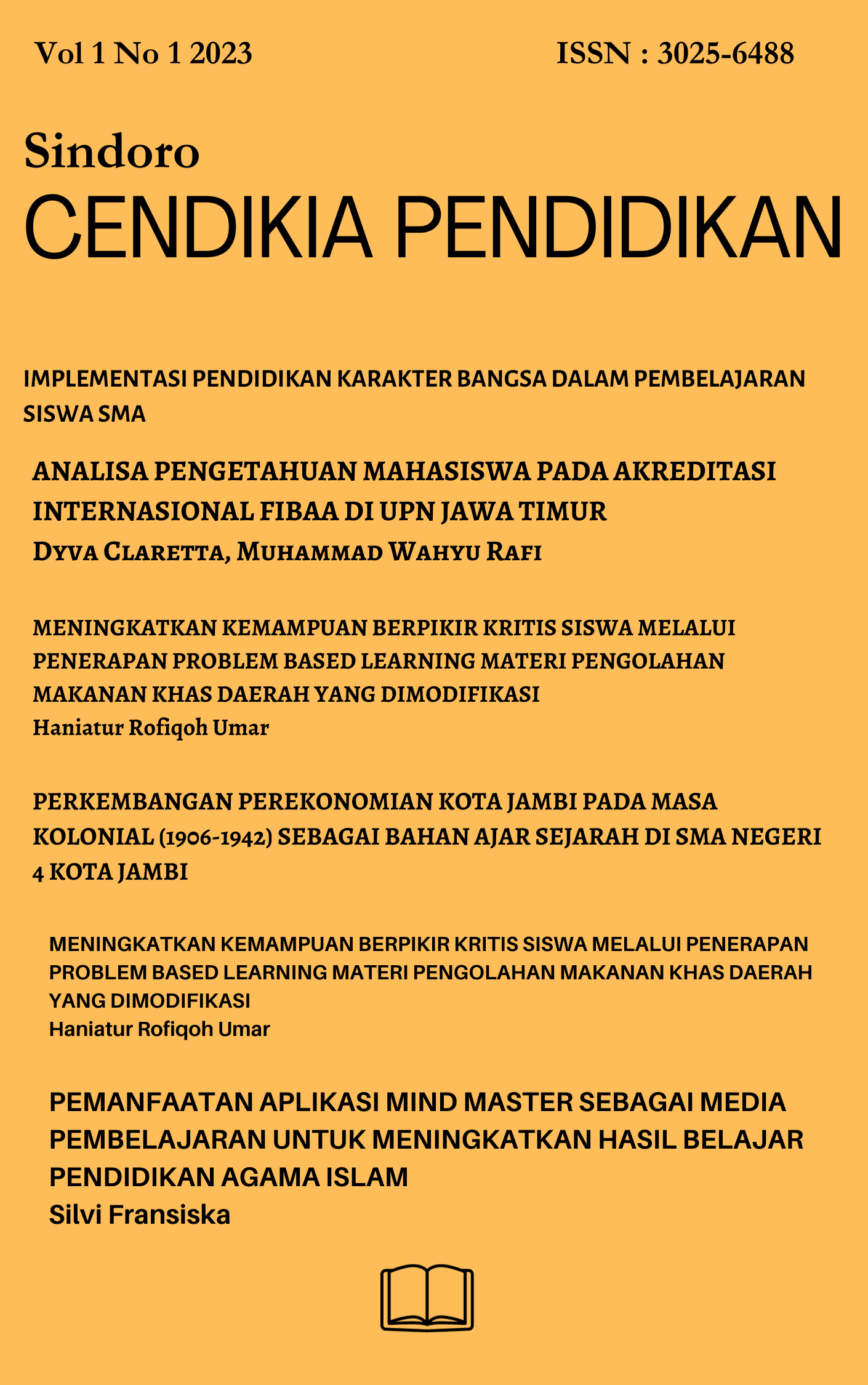PENERAPAN MODEL PEMBELAJARAN KOOPERATIF UNTUK MENINGKATKAN HASIL BELAJAR IPS SISWA KELAS V SDIT I’AANATUTH THALIBIIN KECAMATAN TUALANG
Main Article Content
Abstract
Penelitian ini bertujuan untuk mengetahui pengaruh penerapan model pembelajaran kooperatif terhadap peningkatan hasil belajar Ilmu Pengetahuan Sosial (IPS) siswa kelas V di SDIT I’aanatuth Thalibiin Kecamatan Tualang. Latar belakang penelitian ini didasari oleh rendahnya hasil belajar siswa yang disebabkan oleh dominannya metode pembelajaran konvensional yang berpusat pada guru serta minimnya keterlibatan aktif siswa dalam proses belajar. Penelitian ini menggunakan pendekatan kuatitatif dengan desain eksperimen semu (quasi experimental design) jenis nonequivalent control group design. Sampel penelitian terdiri dari dua kelas, yaitu kelas 5D sebagai kelas kontrol dan kelas 5F sebagai kelas eksperimen, dengan jumlah masing-masing 27 dan 25 siswa. Teknik pengumpulan data dilakukan melalui tes hasil belajar berupa pretest dan postest serta observasi. Data analisis menggunakan uji validitas, normalitas, homogenitas, uji-t dan N-Gain dengan bantuan aplikasi SPSS 25. Hasil uji-t menunjukkan nilai signifikansi (2 tailed) sebesar 0,041 < 0,05 yang berarti terdapat pengaruh yang signifikan dari penerapan model pembelajaran terhadap hasil belajar siswa. Selain itu hasil uji N-Gain menunjukkan peningkatan hasil belajar yang lebih tinggi pada kelompok eksperimen (0,46) dibandingkan kelompok kontrol (0,34), keduanya termasuk dalam kategori sedang. Berdasarkan temuan ini, dapat disimpulkan bahwa penerapan model pembelajaran kooperatif memberikan pengaruh positif dalam meningkatkan hasil belajar IPS siswa sekolah dasar.
This study aims to determine the effect of implementing a cooperative learning model on improving the learning outcomes of Social Sciences (IPS) of grade V students at SDIT I'aanatuth Thalibiin, Tualang District. The background of this study is based on the low learning outcomes of students caused by the dominance of conventional learning methods centered on teachers and the lack of active involvement of students in the learning process. This study uses a quantitative approach with a quasi-experimental design of the nonequivalent control group design type. The research sample consisted of two classes, namely class 5D as the control class and class 5F as the experimental class, with 27 and 25 students respectively. Data collection techniques were carried out through learning outcome tests in the form of pretests and posttests and observations. Data analysis used validity, normality, homogeneity, t-tests and N-Gain tests with the help of the SPSS 25 application. The results of the t-test showed a significance value (2 tailed) of 0.041 <0.05, which means that there is a significant effect of the application of the learning model on student learning outcomes. In addition, the results of the N-Gain test showed a higher increase in learning outcomes in the experimental group (0.46) compared to the control group (0.34), both of which are included in the moderate category. Based on these findings, it can be concluded that the implementation of the cooperative learning model has a positive influence in improving the learning outcomes of elementary school students in social studies.
Article Details
Section
This work is licensed under a Creative Commons Attribution-ShareAlike 4.0 International License.

